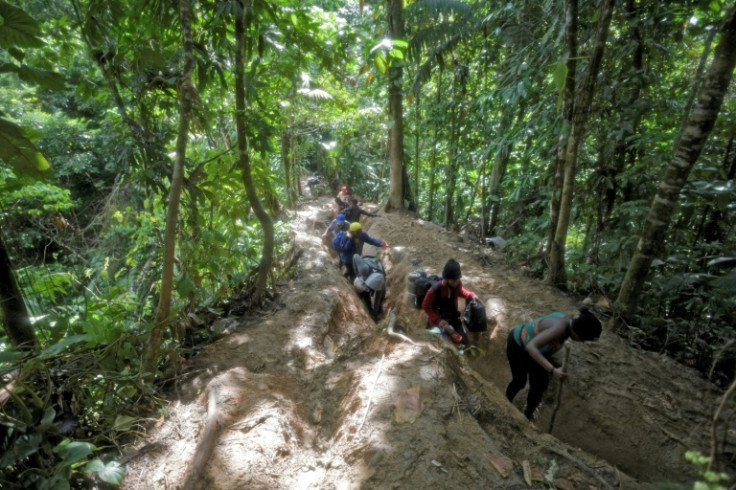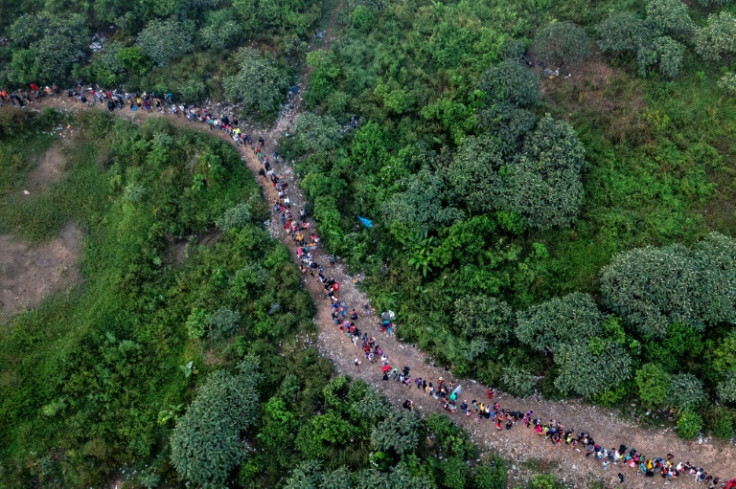
Over half a million people crossed the Darién Gap, the treacherous jungle path between Panamá and Colombia, last year as they migrated to the north, according to figures from the Panamanian government seen by Reuters this week.
Concretely, the figure was closer to 520,000 people, more than double of last year's figures. Around a quarter of the total were minors, said Samira Gozaine, a Panamanian official.
This is a national security problem," she told reporters at a government event. "Unfortunately, we do not have a quick solution to solve it." The government led by president Laurentino Cortizo has repeatedly asked for international aid to deal with the influx of migrants, which has skyrocketed in the past years.
Most of those braving the crossing, which can take up to six days, were fleeing economic misery in Venezuela, with more than 320,000 risking it all in the jungle this year, the government said.
Ecuadorans and Haitians were the next biggest groups, while over 25,000 Chinese citizens also took on the trek.
Vietnamese, Afghans and citizens of Cameroon or Burkina Faso were also recorded. Panama authorities in September announced a series of measures to try and contain the surge in migration, such as an increase in deportations of people who enter the country illegally.
Migrants face rivers, wild animals, and violent criminal gangs in the jungle. Upon arrival in Panama, they head to Costa Rica, and then Nicaragua, Honduras, Guatemala and Mexico, before many make their way to the United States border.

Many of them cross the path on their way to the United States, and the surge in South America has seen a correlation up north. Unlawful encounters at the border have broken several records during the year and the trend keeps moving upwards.
ABC News reported this week that there were 302,000 encounters along the southern border in December, a new record.
The figures comes as the Justice Department filed a awsuit against the state of Texas on Wednesday, claiming that a new immigration law allowing local officials to arrest and deport migrants who cross the border unlawfully is unconstitutional.
Concretely, the suit claims that the Constitution assigns the federal government, and not the states, with the responsibility to regulate immigration and enforce laws related to its international border.
SB4, as Texas' law is known, makes it a misdemeanor to illegally cross the border and a second-degree felony to do so for a second time. Punishments for this latter case range between 180 days in jail to 20 years in prison. The law also allows judges to order that undocumented people "return to the foreign nation from which they entered."
Texas governor Greg Abbott claimed that some eight million people have crossed the border illegally since Biden, a Democrat, took office in January 2021. Abbott defended the new law as constitutional, saying Texas had been left to "fend for itself." He added that the bill passed by the Republican-majority Texas state legislature was needed to "stop the tidal wave of illegal entry into Texas."
© 2023 Latin Times. All rights reserved. Do not reproduce without permission.







